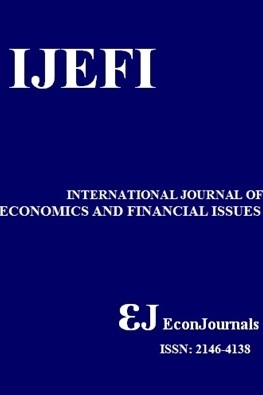Does Internet Usage Stimulate the Accumulation of Social Capital? A Panel İnvestigation for Organization of Economic Cooperation and Development Countries
Does Internet Usage Stimulate the Accumulation of Social Capital? A Panel İnvestigation for Organization of Economic Cooperation and Development Countries
Economic Growth, Internet Usage Organization of Economic Cooperation and Development, Panel Data, Social Capital,
- Başlangıç: 2011
- Yayıncı: İlhan ÖZTÜRK
Sapto JUMONO, Noer Azam ACHSANİ, Dedi Budiman HAKİM, Muhammad FİDAUS
Social Results of Domestic and Foreign Firms: Case Manufacture of Transport Equipment in Russia
Vladislav V. SPİTSİN, Aleksandr A. MİKHALCHUK, Lubov SPİTSİNA, Nataliya TYULENEVA, Darya NOVOSELTSEVA
National Policy of Japan for Stimulating Innovation Process in the Energy Industry
Natalia Alexandrovna Vorobeva, Mikhail Vladimirovich Kolesnikov
External Borrowing and Inflation in Turkey from 2003-14; A Simple Linear Regression Analysis
Single or Menu Contracting: An application of the Hersanyi Model to Mudaraba Financing
Adil El FAKİR, Mohamed TKİOUAT
Bankruptcy Profile of Foreign vs. Domestic Islamic Banks of Malaysia: A Post Crisis Period Analysis
Conflict, Defense Spending and Economic Growth in the Middle East: A Panel Data Analysis
Serkan KÜNÜ, Sertaç HOPOĞLU, Gürkan BOZMA
Does Poverty Influence Prevalence of Child Labour in Developing Countries?
Idris Isyaku Abdullahi, Zaleha Mohd Noor, Rusmawati Said, Ahmad Zubaidi Baharumshah
GDP Development and Employment in Egypt (2000-2013)
Karel MALEC, Shereen GOUDA, Elena KUZMENKO, Daryoush SOLEİMANİ, Helena ŘEZBOVÁ, Petra ŠÁNOVÁ
Relationship between School Education and Economic Growth: SAARC Countries
